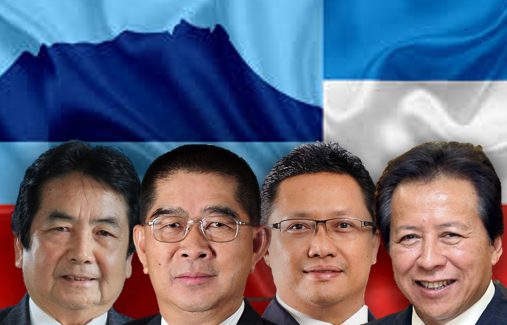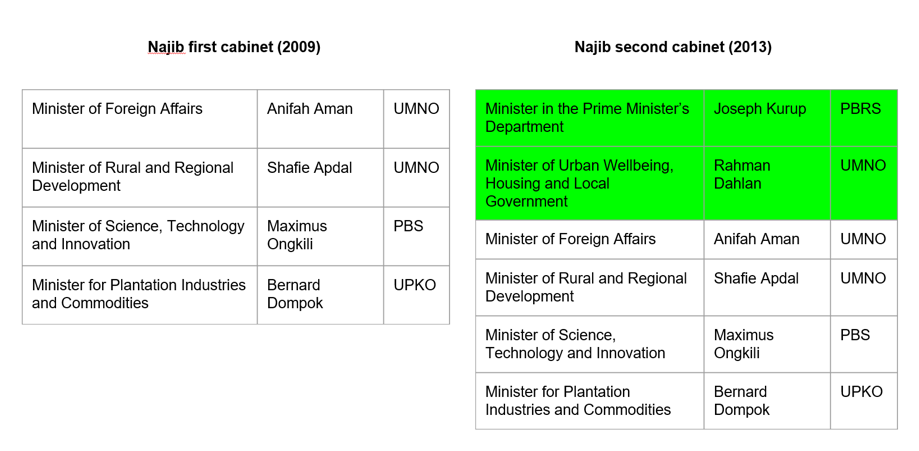Avoiding Sabah tsunami by appointing more Sabahan ministers

Since 2004, there is a total of 60 state seats in Sabah. For a simple majority, 31 state seats are needed to form the state government. In PRU-12, DAP only won one seat in Sri Tanjong, Kota Kinabalu. Majority of the population there are Chinese or urbanised. Therefore, DAP managed to secure their votes.
Where else, in PRU-13, Pakatan Rakyat was at its prime with the whole Ubah movement. DAP managed to won 4 seats and PKR won 7 seats. Pakatan Rakyat won a total of 11 seats in Sabah. Non-Pakatan Rakyat opposition party Parti Solidariti Tanah Airku (STAR) won 1 seats. BN still have the majority of 48 seats. Overall, it wasn’t that bad compared to BN past battle with PBS.
To maintain the trust of Sabahans, Najib brought over several Sabahans into his cabinet. From smaller parties in Sabah, Najib’s cabinet have Joseph Kurup (PBRS), Maximus Ongkili (PBS) and Wilfred Madius Tangau (UPKO) as ministers. From UMNO Sabah division, there were Rahman Dahlan, Salleh Said Keruak, Anifah Aman and Shafie Apdal (formerly). They gave the confidence that they will defend Sabah rights under the Malaysia Agreement 1963 (MA63).

Today, Shafie Apdal is no longer with UMNO. He has his own political party known as Warisan. Plus, Warisan is now in pact with DAP and PKR. So, will Najib plan of bringing in Sabahans politicians into his cabinet work for the upcoming PRU-14? Or will it backfire after Shafie Apdal popularity was boosted from his appointment as the Minister of Rural and Regional Development and the vice-president of UMNO?

